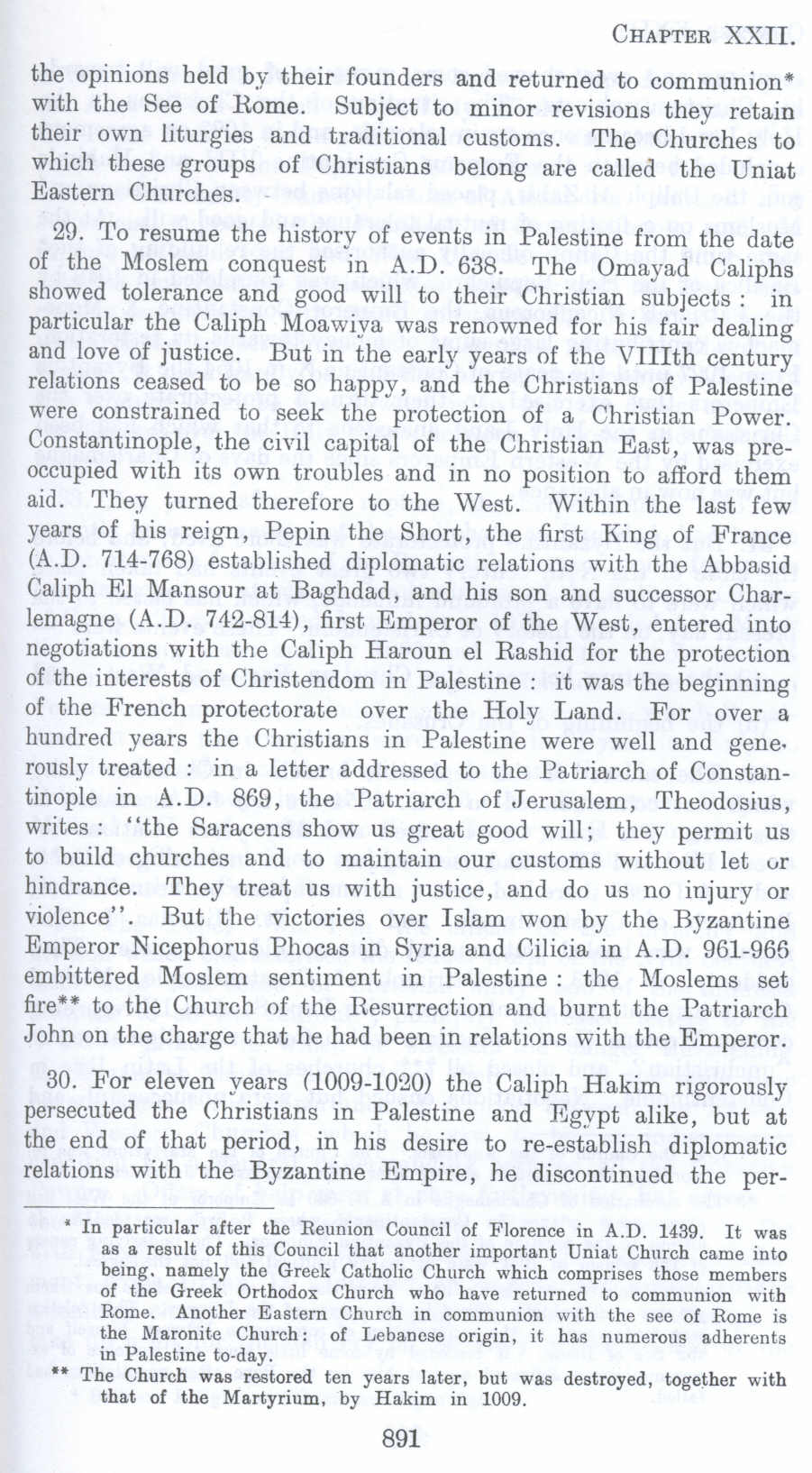| Prev | Next |  |
| Prev | Next |
| PalestineRemembered | About Us | Oral History | العربية | |
| Pictures | Zionist FAQs | Haavara | Maps | |
| Search |
| Camps |
| Districts |
| Acre |
| Baysan |
| Beersheba |
| Bethlehem |
| Gaza |
| Haifa |
| Hebron |
| Jaffa |
| Jericho |
| Jerusalem |
| Jinin |
| Nablus |
| Nazareth |
| Ramallah |
| al-Ramla |
| Safad |
| Tiberias |
| Tulkarm |
| Donate |
| Contact |
| Profile |
| Videos |
British Mandate: A Survey of Palestine: Volume II - Page 891 |
Disclaimer
The above documents, article, interviews, movies, podcasts, or stories reflects solely the research and opinions of its authors. PalestineRemembered.com makes its best effort to validate its contents.


Post Your Comment
*It should be NOTED that your email address won't be shared, and all communications between members will be routed via the website's mail server.
the opinions held by their founders and returned to communion." with the See of Rome. Subject to minor revisions they retain their own liturgies and traditional customs. The Churches to which these groups of Christians belong are called the Uniat Eastern Churches.
29. To resume the history of events in Palestine from the date of the Moslem conquest •in A.D. 638. The Omayad Caliphs showed tolerance and good will to their Christian subjects : in particular the Caliph Moawiya was renowned for his fair dealing and love of justice. But in the early years of the VIIIth century relations ceased to be so happy, and the Christians of Palestine were constrained to seek the protection of a Christian Power. Constantinople, the civil capital of the Christian East, was preoccupied with its own troubles and in no position to afford them aid. They turned therefore to the West. Within the last few years of bis reign, Pepin the Short, the first King of France (A.D. 714-768) established diplomatic relations with the Abbasid Caliph El Mansour at Baghdad, and his son and successor Charlemagne (A.D. 742-814), first Emperor of the West, entered into negotiations with the Caliph Haroun el Rashid for the protection of the interests of Christendom in Palestine : it was the beginning of the French protectorate over the Holy Land. For over a hundred years the Christians in Palestine were well and generously treated : in a letter addressed to the Patriarch of Constantinople in A.D. 869, the Patriarch of Jerusalem, Theodosius, writes : "the Saracens show us great good will; they permit us to build churches and to maintain our customs without let or hindrance. They treat us with justice, and do us no injury or violence". But the victories over Islam won by the Byzantine Emperor Nicephorus Phocas in Syria and Cilicia in A.D. 961-965 embittered Moslem sentiment in Palestine : the Moslems set fire** to the Church of the Resurrection and burnt the Patriarch John on the charge that he had been in relations with the Emperor.
30. For eleven years (1009-10~0) the Caliph Hakim rigorously persecuted the Christians in Palestine and Egypt alike, but at the end of that period, in his desire to re-establish diplomatic relations with the Byzantine Empire, he discontinued the per-
__________________________________
* In particular after the Reunion Council of Florence in A.D. 1439. It was as a result of this Council that another important Uniat Church came into being. namely the Greek Catholic Church which comprises those members of the Greek Orthodox Church who have returned to communion with Rome. Another Eastern Church in communion with the see of Rome is the Maronite Church: of Lebanese origin, it has numerous adherents in Palestine to-day .
** The Church was restored ten years later, but was destroyed, together with that of the Martyrium, by Hakim in 1009.
891